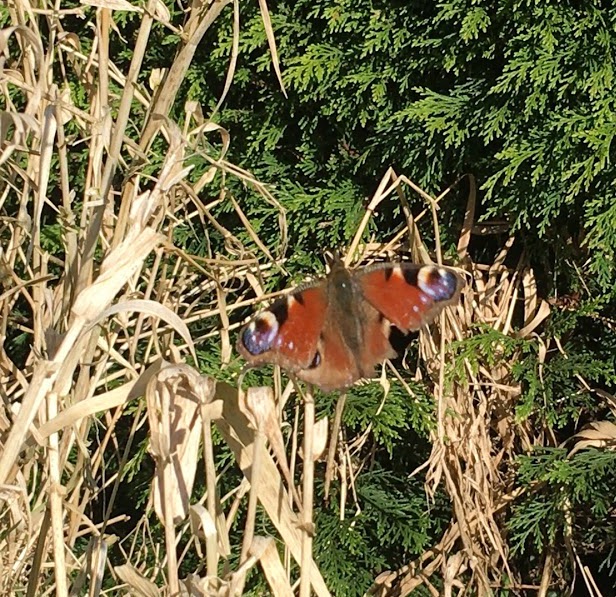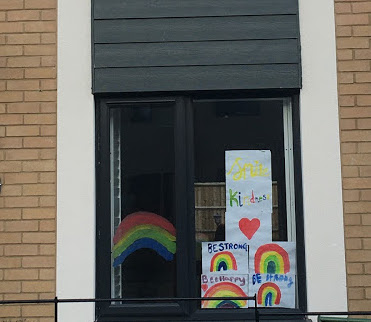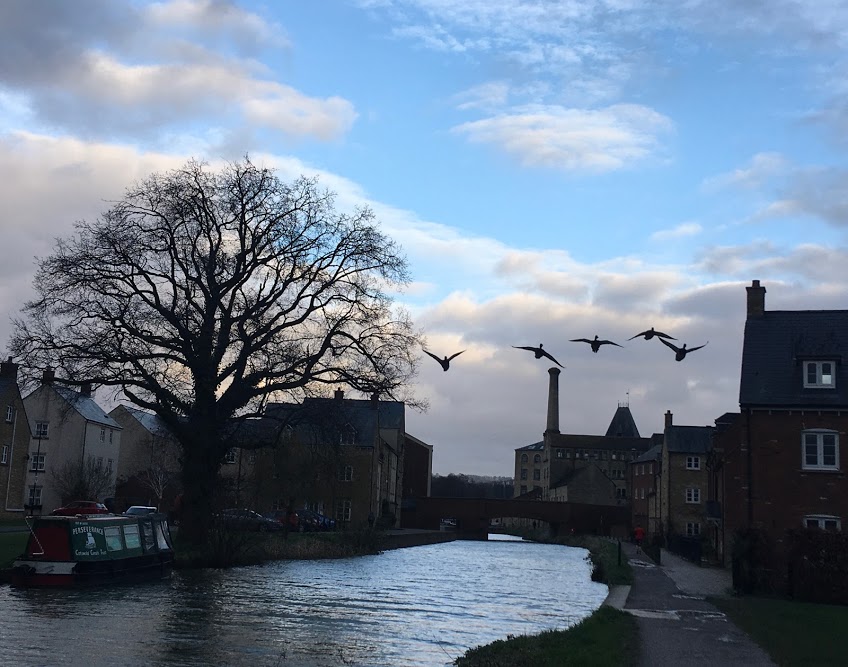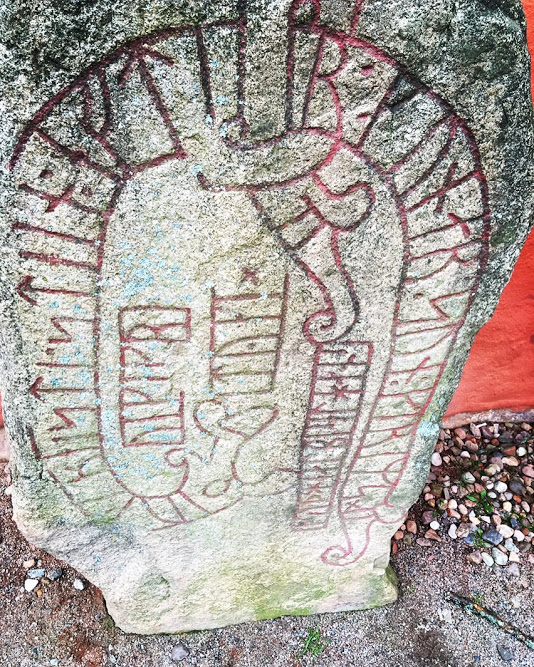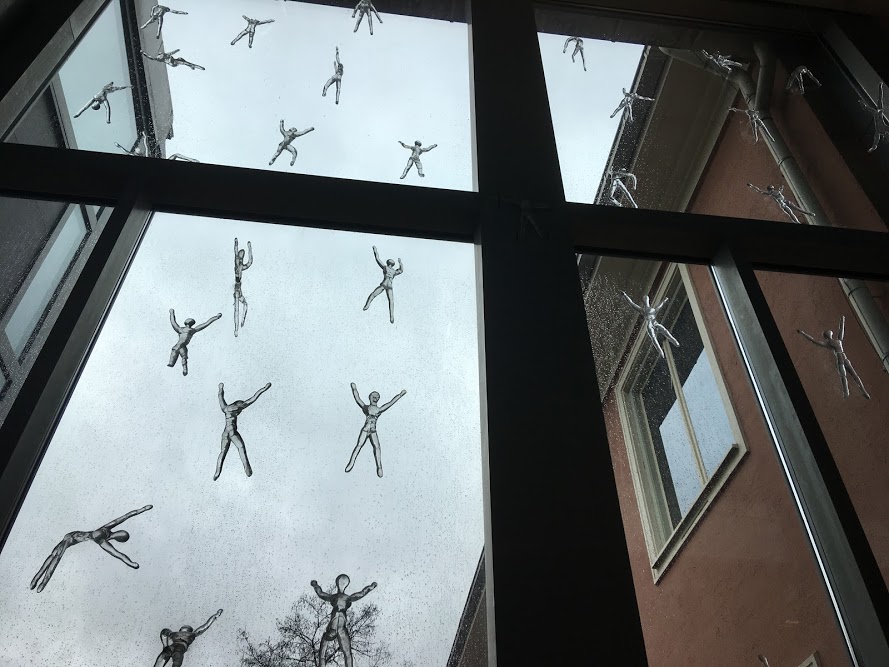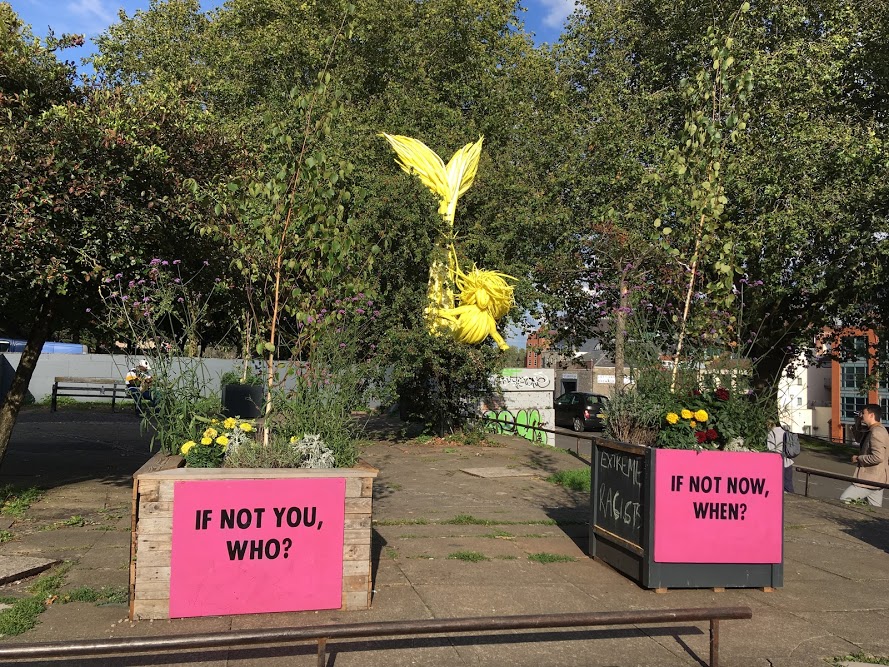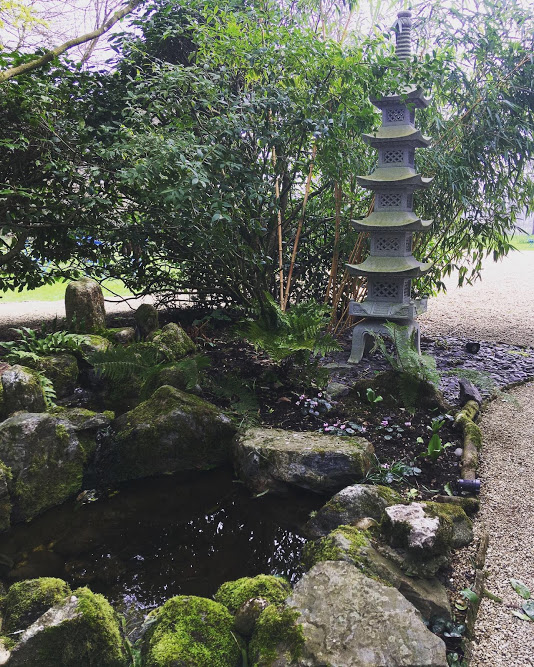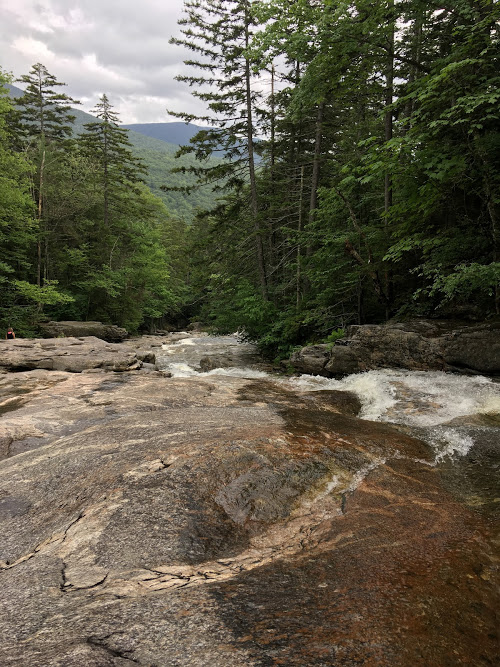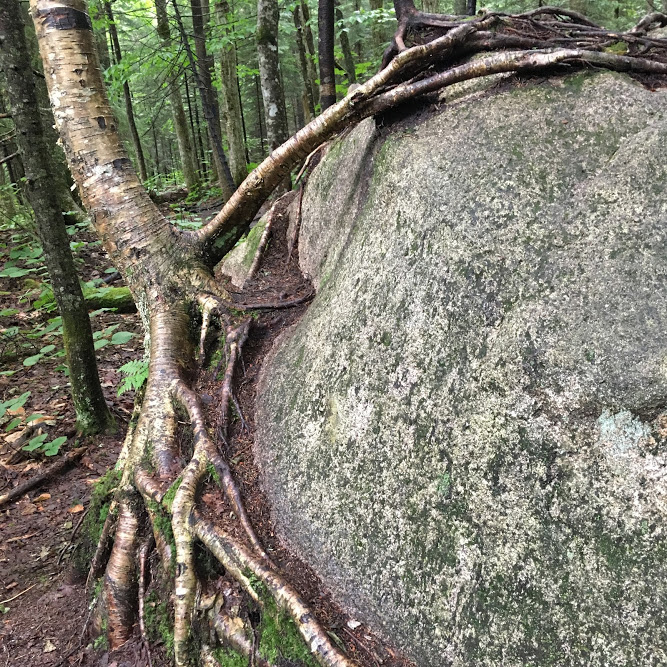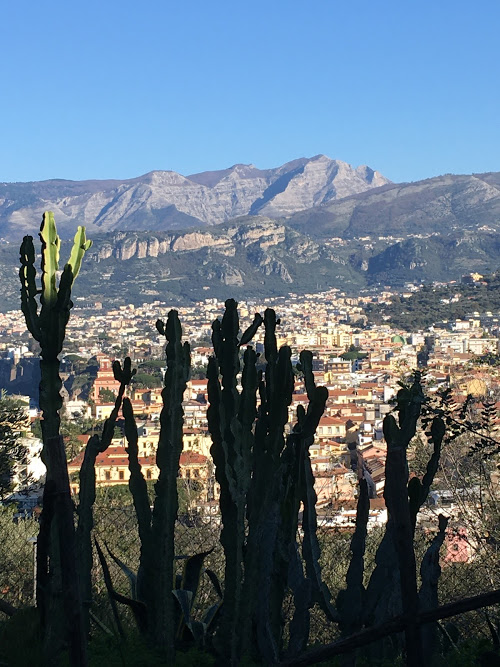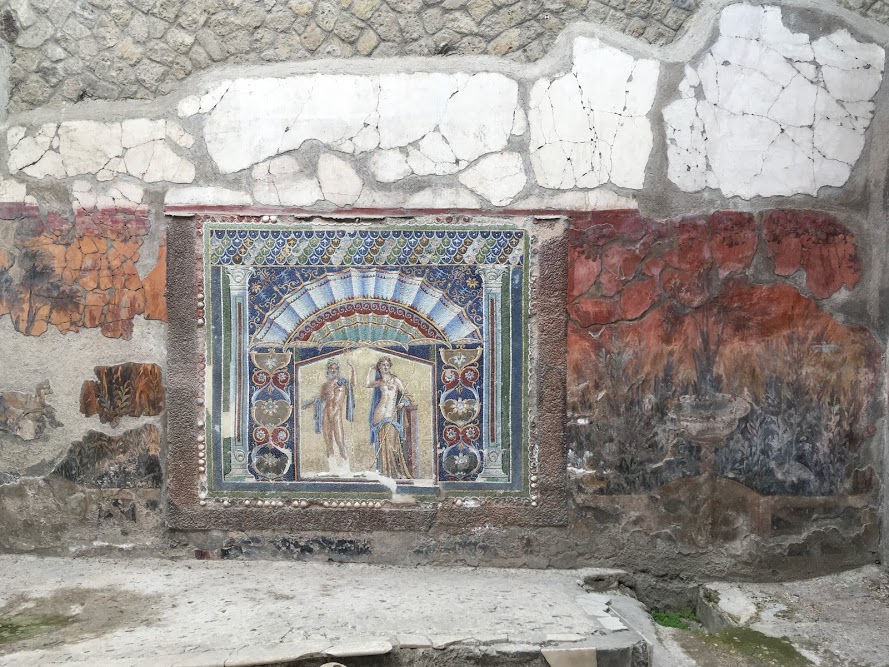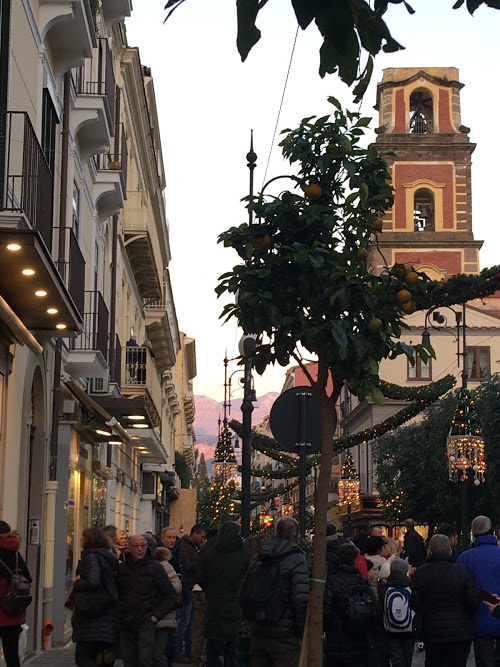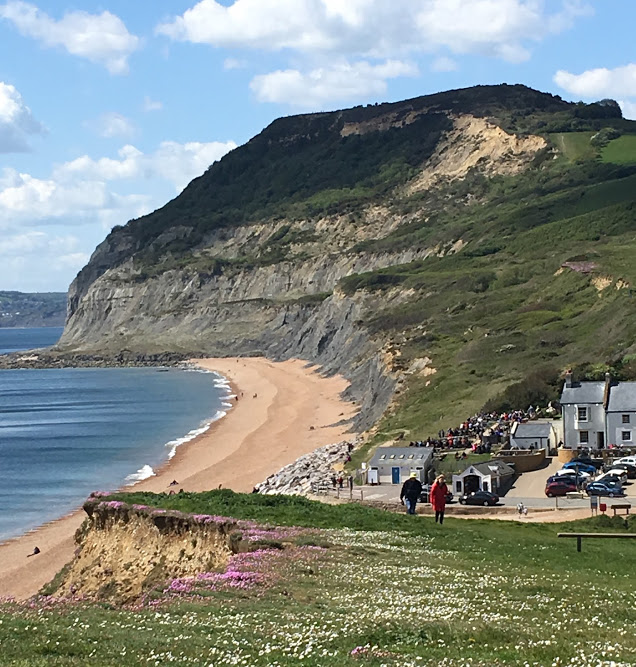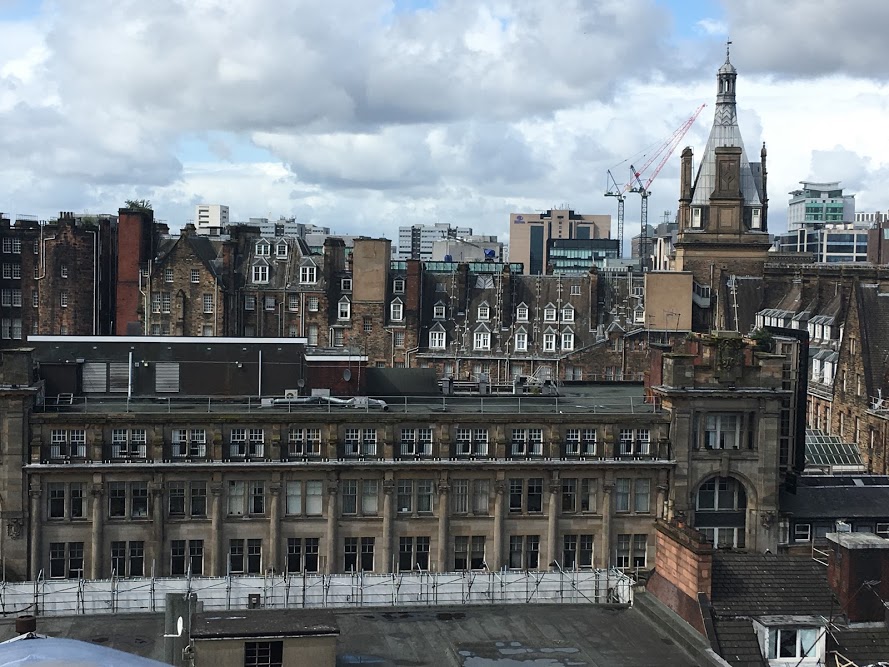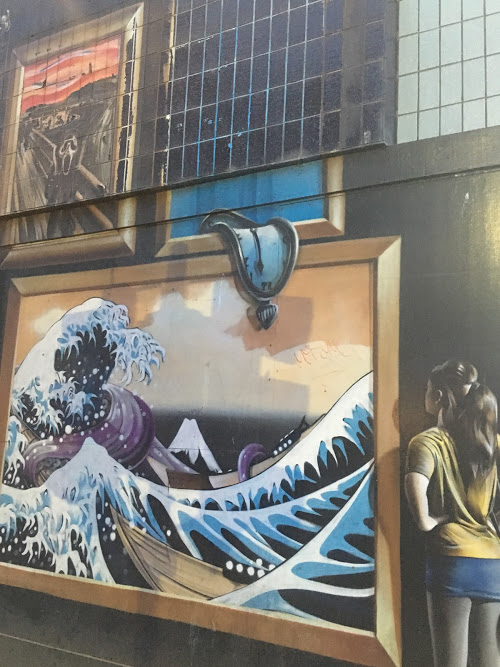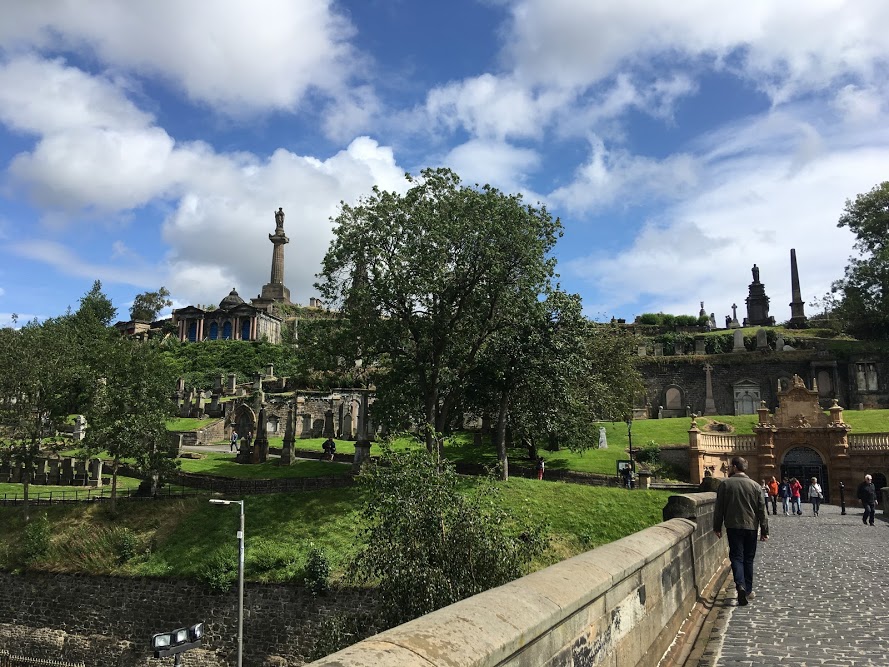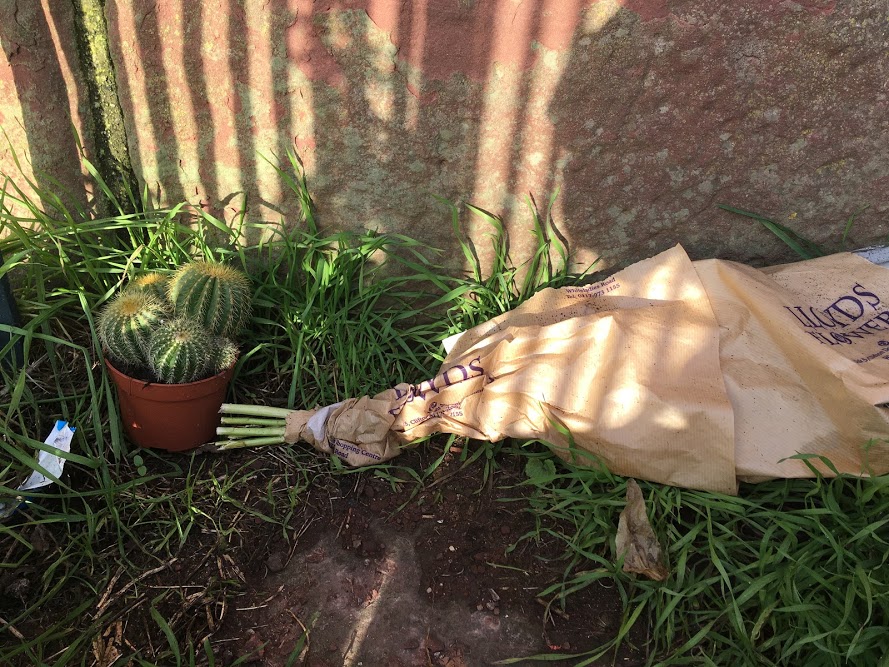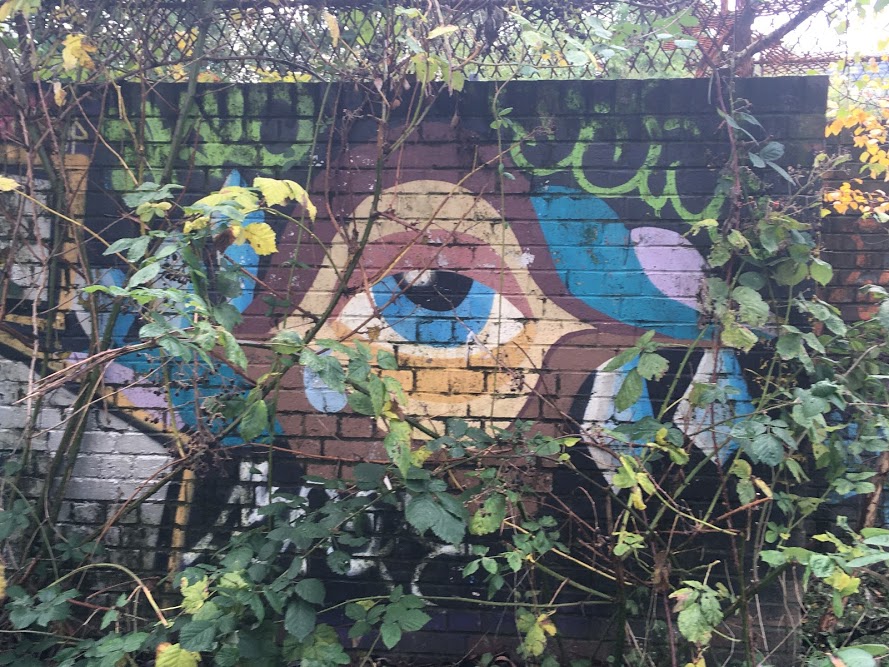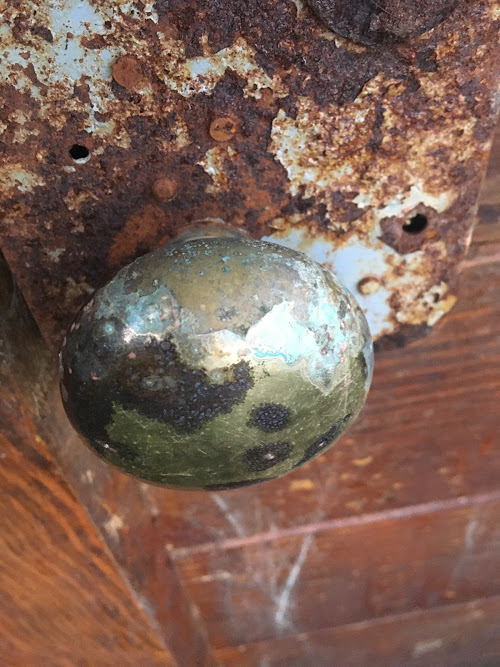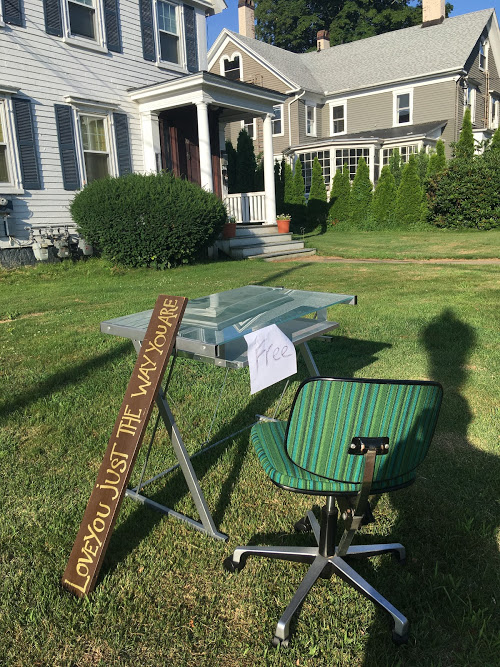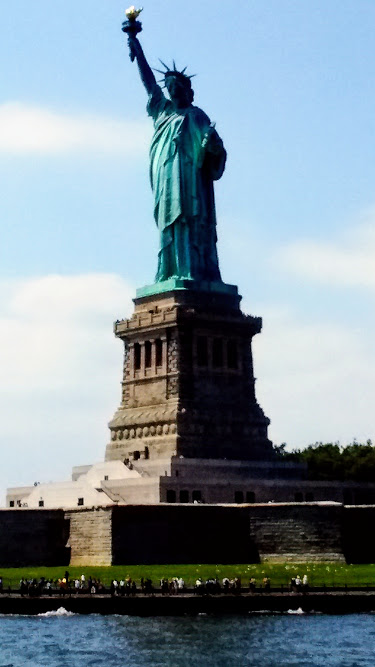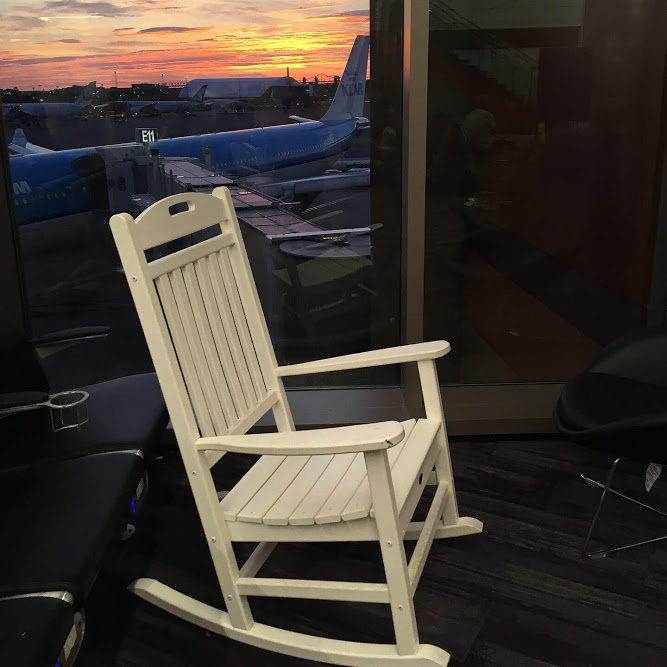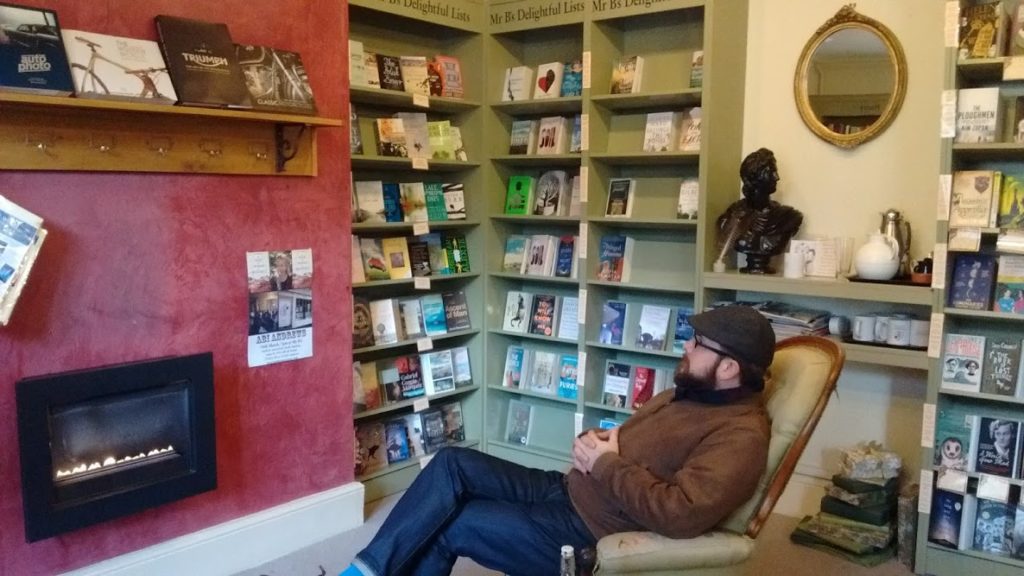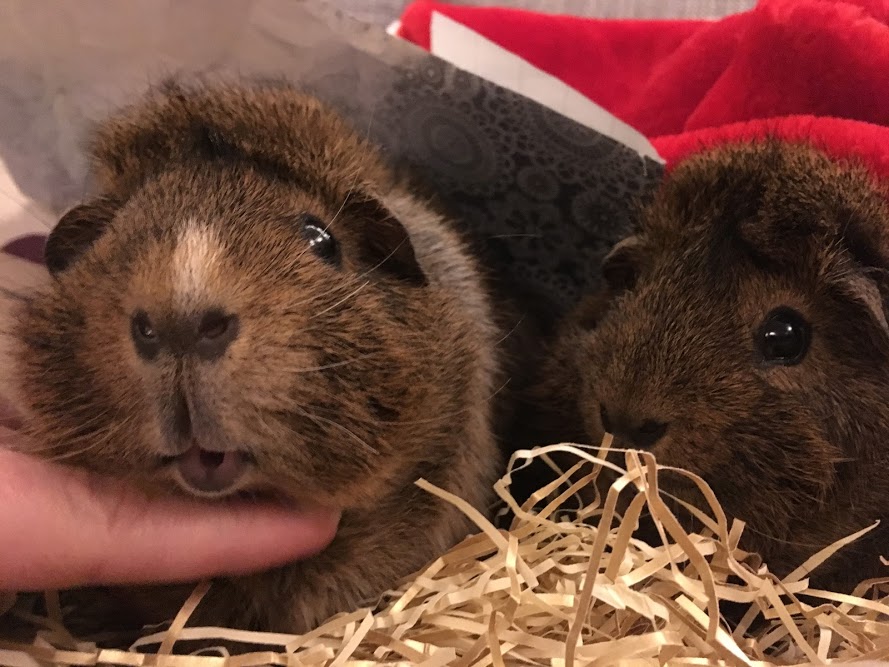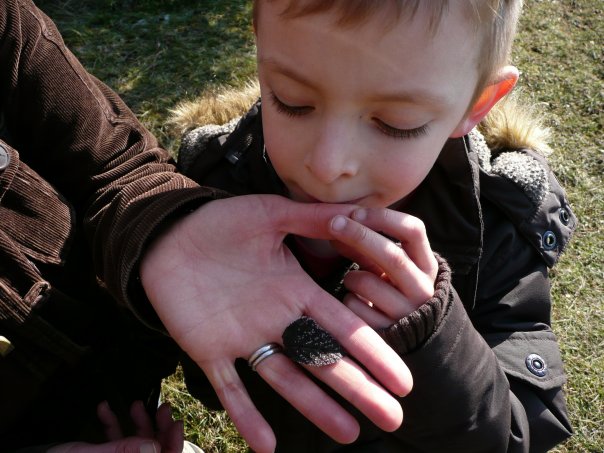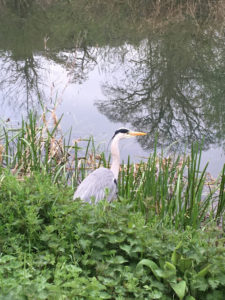This Week’s Bit of String: School Uniform on Good Friday
On Good Friday we set out early for our daily exercise, before it got hot. It was quiet, apart from two figures on the pavement ahead. A girl, maybe six years old, skipped and stumbled in her pleated grey skirt, and a young mum all in black carried her schoolbag. They were walking away from the local primary school.
How could they not know the Easter holidays were starting? Had they just rocked up for the day after not bothering for a little while, as if school were a drop-in daycare?
Lately, I have a spreading case of Hey-what-are-they-up-to-itis. Where’s that van driver going to dump all that garden waste, while the tip is closed? Do those people gathered in the park actually live together? I don’t think I’m the only one catching this illness. Plenty of people have been crippled by it most of their lives. But I don’t want my sense of other people’s humanity reduced to a behavioural rubric, so I’m looking at what’s caused this other virus to take hold.
Community
Bitter suspicion may be an unfortunate by-product of the talk about sacrifice and community spirit. We’re told to give up even family visits to protect the NHS. Despite rainbows in many windows, despite clapping for frontline employees, human nature doesn’t allow sacrifice without expecting something in it for ourselves.
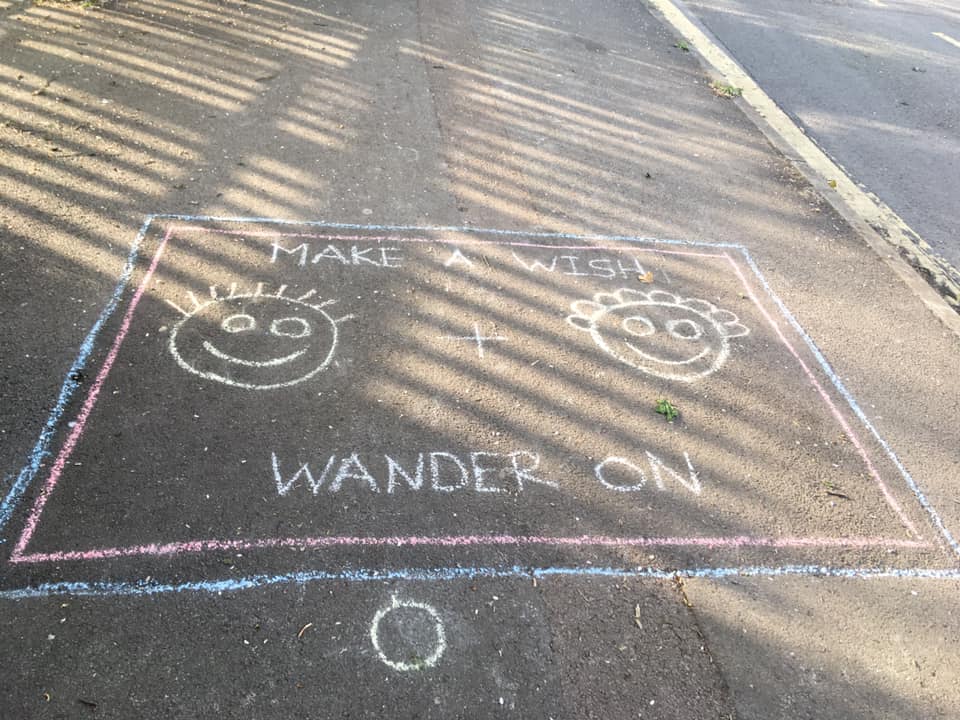
It’s like when people interrogate benefits recipients or homeless people on what they’re doing with money put toward their survival. That always bothered me. If I donate a minute fraction of my wealth to someone, I don’t feel entitled to a complete accounting of their lifestyle choices. But now, while we deprive ourselves of pubs, beaches, and simply buying supplies to spruce up the garden, we worry that others are not made of the same fortitude and we expect RESULTS, dammit.
(It’s easier to take out lack of results on random people in the street than to hold wily governments accountable by, say, voting out politicians that neglect incredibly well-loved health systems.)
Control
At the supermarket last week, I got in trouble for entering the store. It was an hour before closing, the car park was virtually empty, but apparently I was supposed to wait until I saw someone exit before I could enter. The woman on duty huffily locked the doors after me. “If people can’t follow the rules, we’ll just have to let them in when we know it’s safe.”
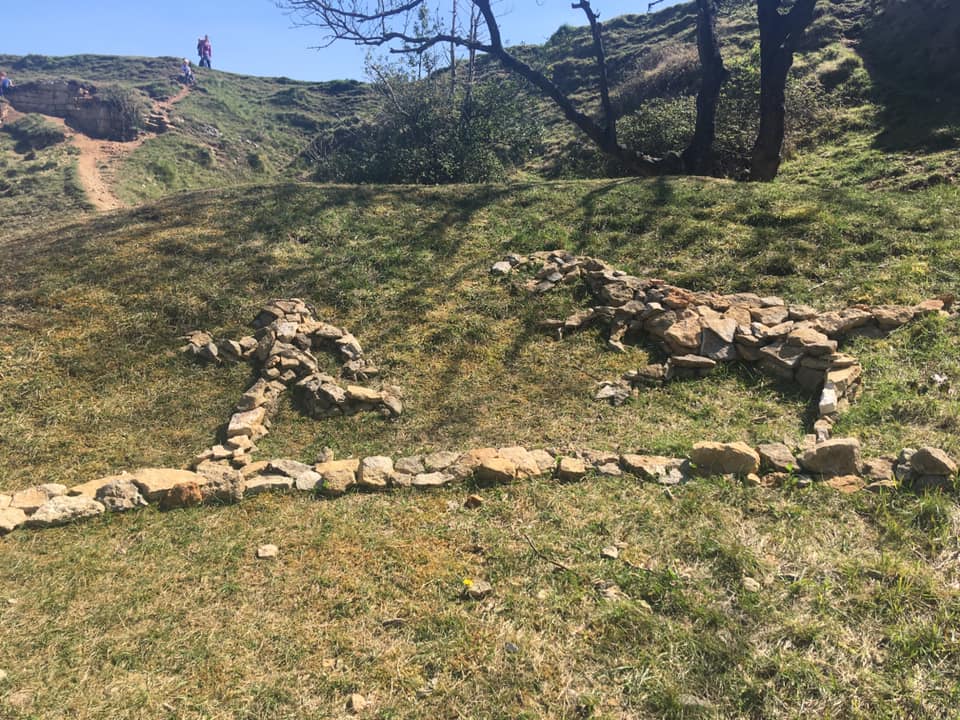
I easily did my weekly shop without brushing up against many other customers. At the till, the same worker got chatty when I asked how she was finding the situation. She told me the manager’s wife was an ICU nurse and had just been sent home with a fever and cough, so the manager had rushed away into quarantine as well.
How long before the rest of the staff show symptoms? No wonder she and her co-workers might enforce excessive restrictions. So much else was out of their control. The lack of control can effect the rest of us in a similar way, causing us to exert pressure on others even when there’s not a clear risk to us.
Confidence
The final reason why we might be thinking negatively about other people is our personal insecurity at the moment. Isolation deprives many of a major boost: employment. It also deprives us all of various little boosts that brighten our days. Friendly smiles, compliments, opportunities to show off or be caught at doing good.
For me, this particularly affects my writing. When people say they’re “using all this spare time to write a novel,” I despair I’ll never get mine looked at when agents open for submissions again with slush piles the size of supermarket queues. I find myself thinking unkindly toward people I’d normally encourage.
In Paulo Coelho’s novel Veronika Must Die, a psychiatrist theorises that Vitriol, or Bitterness, is behind many forms of “madness.” It always exists in each person, but “attacks when a person is debilitated…The right conditions for the disease occur when the person becomes afraid of so-called reality.”
Our reality is pretty scary right now, so we need to stop Vitriol spreading. The best cure is surely empathy, which often emerges as a theme in my writing. For example, my novel The Wrong Ten Seconds follows Charlie, a supermarket worker caught on viral video in a desperate act, and the impact on his daughter, a care home nurse, as well as the girl who made the video. Starting next week, I’ll be reading this in video installments. Watch this space!
In the meantime, how’s everyone holding up? Any symptoms of bitterness, or is that just me?
